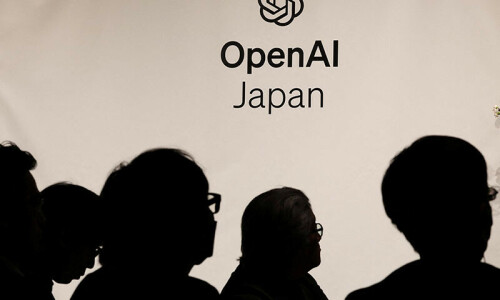KARACHI: A few weeks back, writer Taj Joyo declined the recently announced President’s Pride of Performance award for him in protest against his son, social activist Sarang’s disappearance. It created quite a stir in society and generated a debate in literary and political circles about the unease that the writers’ community is feeling these days. On Thursday Veerta Ali Ujan, daughter of distinguished Urdu poet, the late Fahmida Riaz, took the debate a step ahead by turning down the presidential award given to her mother. Her reason for not accepting it was the same: alleged kidnapping and torture of journalists and writers.
Ms Ujan chose Facebook to make her decision known to everyone. She wrote on her page, “Awards section contacting me about ammi’s award investiture ceremony… How can I accept an award for her work at this time? It would be an insult to her whole life’s struggle for justice and equality. Writers and journalists are being kidnapped, tortured, even murdered. Harassers being awarded. Karachi left to rot in sewage.
“So. No thank you. I am refusing the presidential award for my mother’s work. I’m sure she would have refused it if she was alive today.”
Ms Riaz was a feminist who produced a great body of work in literature primarily to raise her voice for the marginalised segments of society. Some also credit her for pioneering feminist literature in the region. Her first collection of poems Pathar Ki Zaban, published in 1967, was immediately noticed by critics and readers alike. But it was her second book, Badan Dareeda, which cemented her position as a formidable poet. She also wrote critically acclaimed novels such as Godavri and Qila-i-Faramoshi.
Expressing her views on Ms Ujan’s decision, poet Attiya Dawood said, “Fahmida never compromised on principles, which is why she led a financially challenged life. This was the kind of attitude that she also inculcated in her children. Once a culture minister came to Fahmida and asked her what he could do for her or if she needed anything to make her life comfortable. She replied she wanted an ‘electric kettle’ to make tea. That’s how simple she was. I think Veerta has taken the right decision because Fahmida would never have approved of what’s going on in society.”
Social activist Anis Haroon, who was very close to the late poet, said, “The kind of curbs that the press is faced with today [weren’t] even experienced when martial law was imposed in the country. The media is under tremendous pressure. I agree with Veerta’s decision. The authorities have a two-faced (do rukhi) policy: on the one hand they are [allowing] all these curbs on writers and journalists and on the other hand they are giving away awards. It can’t work that way.”
Published in Dawn, September 5th, 2020











































Dear visitor, the comments section is undergoing an overhaul and will return soon.